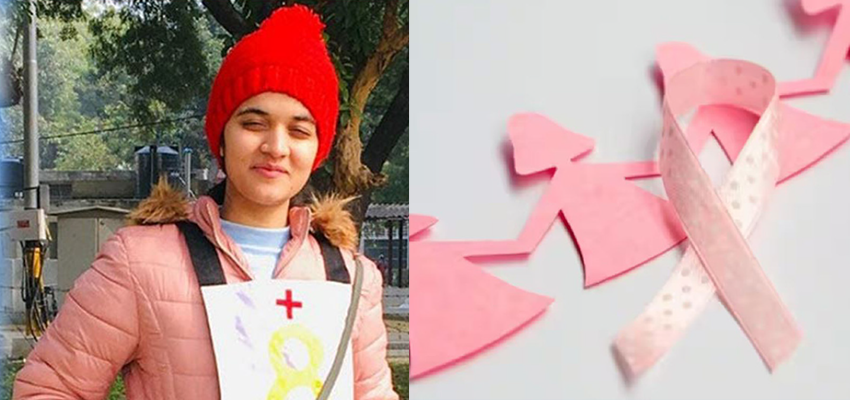
Corporate Citizen claps for Captain Shiva Chauhan, of the Indian Army Corps of Engineers, who remains India’s first-ever woman Army officer to have been operationally deployed at a frontline post in Siachen Glacier, the world’s highest battlefield.
An Indian Army Officer of the Fire and Fury Corps (XIV Corps), she was posted at the Kumar post, at an altitude of around 15,600 feet in Siachen in January 2023, for a three-month stint, amidst the frozen landscape, which witnesses temperature dips to minus 60 degrees Celsius. The glacier is the highest militarised region in the world, where soldiers battle enemies, frostbite and high winds. What makes her unique is her grit and the fact that most women officers have so far been posted to the Siachen base camp, at about 9,000 ft., as part of their regular unit postings. Almost 80 perc ent of positions on the Siachen glacier are above 16,000 feet, with the highest post at 21,000+ feet. Shiva’s grit as part of the Bengal Sappers Corps of Engineers finds strength in her battle for survival. Hailing from Rajasthan, she lost her father when she was 11 years old and was raised by her stoic mother, a housewife. Schooled in Udaipur, Shiva is a Civil Engineer from the Techno India NJR Institute of Technology, Udaipur. She harboured a dream to join the army during her formative years, and her achievements have etched her name in history. Before her Siachen deployment, Shiva undertook a rigorous month-long endurance training, ice wall climbing, avalanche and crevasse rescue and survival drills, at the Siachen Battle School. In March 2020, she qualified for an interview with the Service Selection Board (SSB) and topped the All India Ranking (AIR) that year. It paved her way into the SSC-Tech 25 (Army) under the 19 SSB Allahabad. She was lauded for covering 508 km, leading the Sura Soi Cycling Expedition from the Siachen War Memorial to the Kargil War Memorial in July 2022. She has led an all-men officer’s unit of the Sura Soi Engineer Regiment at Siachen, which qualified her to under go training at the Siachen Battle School. The Siachen glacier (75 km long) lies in the Karakoram Range, making it the world’s second-longest non-polar glacier.
Corporate Citizen slaps the underlying societal apathy towards women’s health, the absence of quality expertise at the primary care level and the lack of awareness, leading to delayed access to cancer prevention, detection, and care.
The recent Lancet Commission on “Women, Power, and Cancer”, has presented a comprehensive, global view of the difficulties that women face, often limiting their ability to overcome their cancer-led challenges for themselves and society. The Lancet report highlighted gender inequity in cancer care, showcasing cases of Indian women who battle cancer, alongside domestic violence and poverty. These women are unable to access treatment, resulting in rapid degeneration of the disease into advanced stages. The study authors identified that around two-thirds of cancer deaths in Indian women were preventable and that 37 per cent were treatable, had they been diagnosed on time and found optimal care. The study noted that “Around 6.9 million cancer deaths in women were preventable and 4.03 million were treatable.” Official data shows that breast, cervical, and ovarian were the topmost cancer conditions in India in 2020. Moreover, infection continues to be the biggest risk factor for women cancer patients in India, contributing to 23 per cent of deaths. Rama Devi, 36 years from Mumbai’s Nalasopara area did not know that her headaches were due to a developing brain cancer as her alcoholic husband ignored it, while the local doctor dismissed her condition as an eye problem. Thanks to her father-in- law, a small-time vendor, who arranged for her medical aid and diagnosis. Rama’s story is representative of most Indian women battling cancer, alongside domestic violence and poverty, who cannot access treatment, with the disease degenerating quickly into advanced stages. Dr Ishu Kataria, Commissioner, Lancet, observed that women in India diagnosed with cancer die owing to family apathy, in- difference to the patient’s condition, and lack of finance and treatment access. The solution, according to Dr Pankaj Chaturvedi, Deputy Director, Centre for Cancer Epidemiology, Tata Memorial Centre, Mumbai, “Awareness is important among women who are educationally and financially less empowered.” However, the burning question is of women’s equality in the household, impacting women’s right to healthcare.